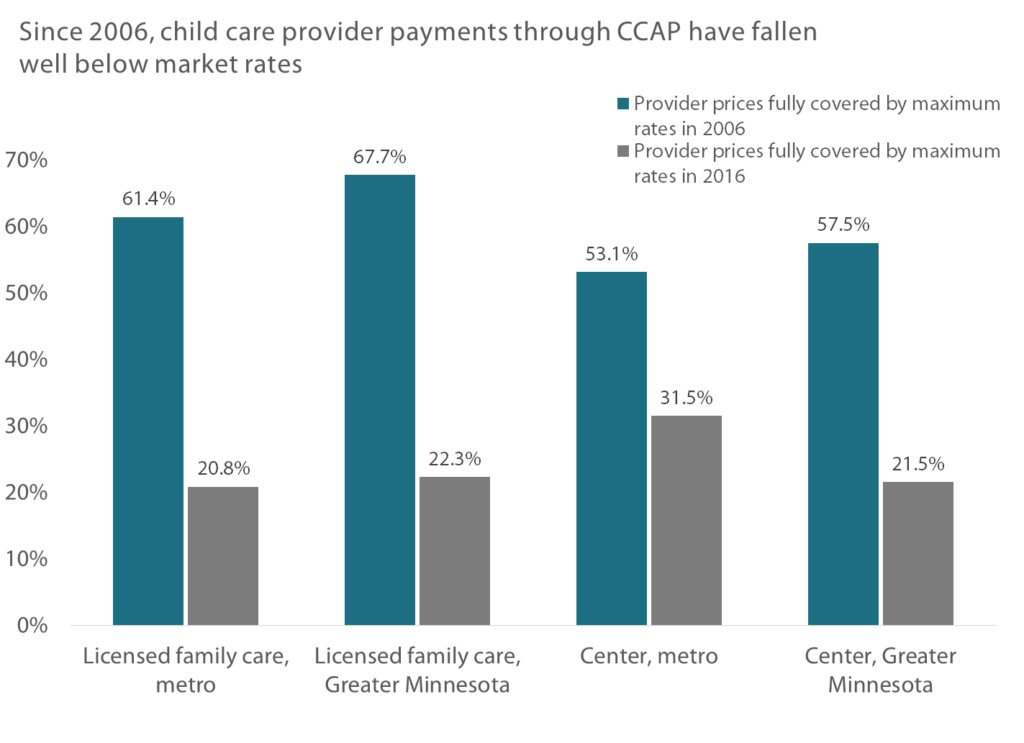The Child Care Assistance Program (CCAP) makes child care affordable for about 30,000 Minnesota children all across the state, including 12,000 toddlers and infants. The state recently released new data that demonstrate both the vital importance of CCAP and the deleterious impact of funding cuts from more than a decade ago.
Thousands of Minnesota families are eligible for child care assistance, but don’t receive it, and thousands of other Minnesota families receive child care assistance only to find that their assistance doesn’t cover the cost of care at many of the providers in their area.
State funding for the Basic Sliding Fee portion of CCAP has decreased by 25 percent since FY 2003, adjusting for inflation. The new state data emphasize the way these cuts have reduced the number of families with affordable child care and undercut families’ ability to find child care providers when they do have access to CCAP.
- In FY 2016, 5,000 fewer families participated in Basic Sliding Fee Child Care Assistance relative to FY 2003. Due to a lack of funding, roughly 5,000 families are now on a waiting list for Basic Sliding Fee. The state estimates that about 8,400 additional families would access affordable child care through Basic Sliding Fee if it were adequately funded.
- The state reimbursement rates paid to child care providers serving CCAP families have deteriorated over time. In 2016, the rates paid through CCAP would have covered less than 29 percent of providers’ prices in child care centers, and less than 22 percent of prices in a family child care setting.

When communities lack affordable child care options, parents struggle to succeed at work or school, employers have a harder time filling important job openings, and children are less likely to have stable, nurturing child care environments in which to thrive. CCAP connects families with that affordable child care. And yet, for over a decade fewer and fewer eligible families have been able to use this vital resource. As they make budget decisions this legislative session, policymakers should take a bold step and reinvest in Minnesota’s commitment to a bright future for our families, our children and our local economies.
By Ben Horowitz